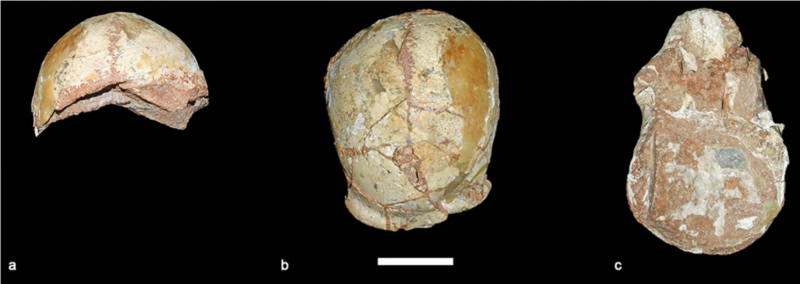Humans may have reached Europe by 210,000 years ago

Enlarge / A view of the Apidima 1 skull from behind (left), above (center), and below (right). The scale bar represents 5 cm. (credit: Harvati et al. 2019)
A few fossilized bones from the back of a skull may prove that our species spread into Eurasia much earlier than previously suspected. A new study of the partial skull, which was excavated from Apidima Cave in southern Greece 40 years ago, suggests that the fossil is Homo sapiens and that it's roughly 210,000 years old. That makes it the oldest member of our species ever found outside of Africa.
The fossil, known as Apidima 1, is likely the remains of a member of an early wave of humans who spread into Eurasia. Based on genetic studies and the fossil record, anthropologists think these early pioneers failed to gain a successful foothold and ended up being replaced by Neanderthals (for a while, at least).
A new look at an old skullArchaeologists excavating Apidima Cave in the 1970s found the partial skull lodged in a chunk of breccia, just a few centimeters away from a broken and distorted Neanderthal skull called Apidima 2, which dated to 170,000 years old. For decades, archaeologists assumed Apidima 1 was a Neanderthal, too. But Eberhard Karls University of Ti1/4bingen paleoanthropologist Katerina Harvati and her colleagues recently took a second look at Apidima 1. The partial skull included just the right pieces of bone to reveal something important: the skull was rounded at the back-a feature that's unique to Homo sapiens.
Read 15 remaining paragraphs | Comments